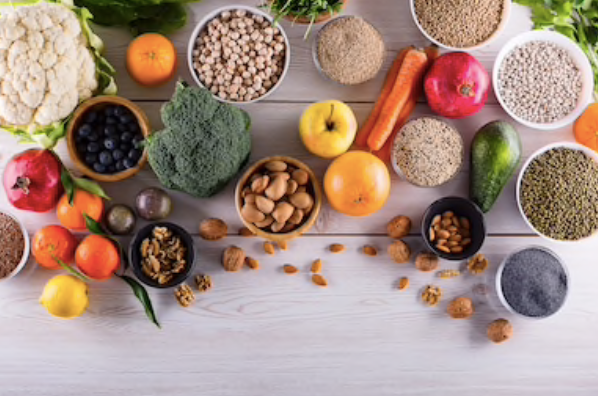Are you getting enough fiber? and why its worth knowing

Fibre
More than likely you have heard about fibre and it’s benefits to health as a result of the increasing media coverage surrounding it. Fibre fits within the complex carbohydrate group and is specifically known as a non-starch polysaccharide (polysaccharide being a complex carbohydrate). Unlike other forms of carbohydrates, fibre isn’t broken down in the small intestine but gets transported to the large intestine.
Fibre, like all carbohydrates, provide some energy. But they play a much more significant role in our health. Fibre has an important role in helping to keep our digestive systems healthy by increasing the number of healthy bacteria in our gut and keeping our bowel movements regular! It also plays a role in lowering cholesterol and decreasing blood pressure.
Foods containing fibre include wholegrains (cereals, pasta, bread, oats, barley, etc.), fruit, vegetables, pulses and beans (lentils, chickpeas, peas, etc.), nuts and seeds. Remember to keep the skin on your fruit and veg as this is where most of the fibre is!
Source: TheGutHealthDoctor, 2018
The image provides a snapshot of some foods high in fibre that you can add to your diet to increase your intake.
Adults are recommended to consume 30g of fibre per day, however the UK only consumes around 18g per day on average! Variety is key to obtaining the health benefits from increasing your fibre intake, so try to vary your fibres sources as much as possible. Here are some tactics you could employ which could help you reach the recommended 30g per day:
- Opting for wholegrain varieties
- Including fruit or veg with every meal (adding fruit to breakfast, including 2-3 portions of veg to your lunch or dinner)
- Subsisting meat with pulses or beans occasionally (try Deliciously Ella’s Sweet Potato and Black Bean Shepherd’s Pie - https://deliciouslyella.com/2018/05/26/sweet-potato-black-bean-shepherds-pie/)
- Snack on nuts and seeds (try these spiced nuts -https://anoregoncottage.com/easy-and-healthy-spiced-nuts/or add into stir fry’s – https://www.bbcgoodfood.com/recipes/cashew-chicken-stir-fry)
It is worthy to note at this stage that if you have been diagnosed with IBS it is best to seek guidance from a Registered Nutrionist or Dietician as increasing fibre can often aggravate symptoms. Lastly, when increasing your fibre intake, it is best to do so slowly and make sure to drink plenty of water too!

